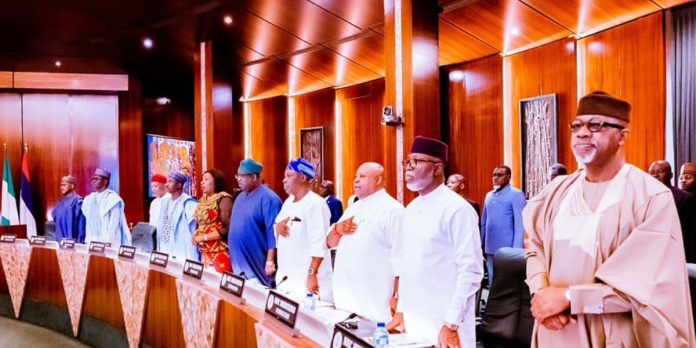The Nation
States retain control of over N1trn received by LGs despite Supreme Court’s ruling on autonomy

More than nine months after the Supreme Court directed that local government allocations be paid directly to their accounts, the Federal Government has continued to channel the funds through state governments.
Data from the Federation Account Allocation Committee (FAAC) reveals that N1.232tn was allocated to local government areas (LGAs) between January and March 2025, though routed via state treasuries in defiance of the apex court’s ruling.
Breakdown of the allocations shows LGs received N434.57bn in January, N410.56bn in February, and N387bn in March. This amounted to 24.8 per cent of the N4.959tn shared among the federal, state, and local governments in Q1 2025.
In January, FAAC distributed N1.703tn across the three tiers: the Federal Government got N552.59bn, states took N590.61bn, and LGs received N434.57bn. This was drawn from statutory revenue (N749.73bn), VAT (N718.78bn), Electronic Money Transfer Levy (N20.55bn), and an augmentation of N214bn.
READ ALSO:ALGON reveals reason delaying direct allocation to local govts
February saw a total of N1.678tn shared. The federal share stood at N569.66bn, while states and LGs received N562.20bn and N410.56bn respectively. The sources included N827.63bn in statutory revenue, N609.43bn from VAT, N35.17bn in EMTL, N28.22bn from solid minerals, and an augmentation of N178bn.
In March, FAAC allocated N1.578tn—N528.70bn to the Federal Government, N530.45bn to states, and N387bn to LGs. This came from statutory revenue (N931.33bn), VAT (N593.75bn), EMTL (N24.97bn), and an exchange difference of N28.71bn.
The allocation uptick was credited to stronger collections from statutory sources, VAT, and augmentation payments. VAT revenue, which peaked at N771.89bn in January, declined to N654.46bn in February and N637.62bn in March. Conversely, statutory revenue dipped from N1.848tn in January to N1.653tn in February but rose again to N1.718tn in March.
Despite increased revenue, the Supreme Court’s July 2024 directive for direct allocation to LG accounts has yet to be enforced.
The Central Bank of Nigeria attributed the delay partly to the lack of updated audited accounts from several local councils, which has hindered the opening of designated accounts for direct disbursement.
As a result, funds continue to flow through state governments, raising questions about transparency and the rule of law in managing grassroots finances.
The Federal Government received N1.651tn in Q1 2025, while the states collectively received N1.683tn. Meanwhile, the Excess Crude Account, designed as a buffer against oil price fluctuations, remained at $473,754.57 by the end of March.
The Association of Local Governments of Nigeria (ALGON) has accused the Attorney-General of the Federation’s office of stalling implementation of the Supreme Court judgment, despite its clear support for local government financial independence.
ALGON has also filed a lawsuit—FHC/ABJ/05/353/2025—against several federal agencies, seeking recognition of LGs as full participants in the FAAC process and the right to control their own finances.
Named in the suit are Finance Minister Wale Edun, Budget and Planning Minister Abubakar Bagudu, the Accountant-General, the Central Bank, NNPCL, and several commercial banks.
According to ALGON, the legal action is meant to push beyond symbolic autonomy and ensure practical execution.
The case, listed before Justice Inyang Ekwo, was postponed to May 29, 2025, after the court failed to sit.
Reacting to the ongoing delays, ALGON Secretary-General Mohammed Abubakar voiced dismay over the federal government’s inaction.
He said, “When the Supreme Court gave its judgment, everybody was happy and our hopes were high. But up till now, the money has not started coming directly to the local governments.”
He added that vested interests might be resisting reform: “Some people are benefitting from the current system and are working against the implementation of the court’s ruling.”
(PUNCH)























